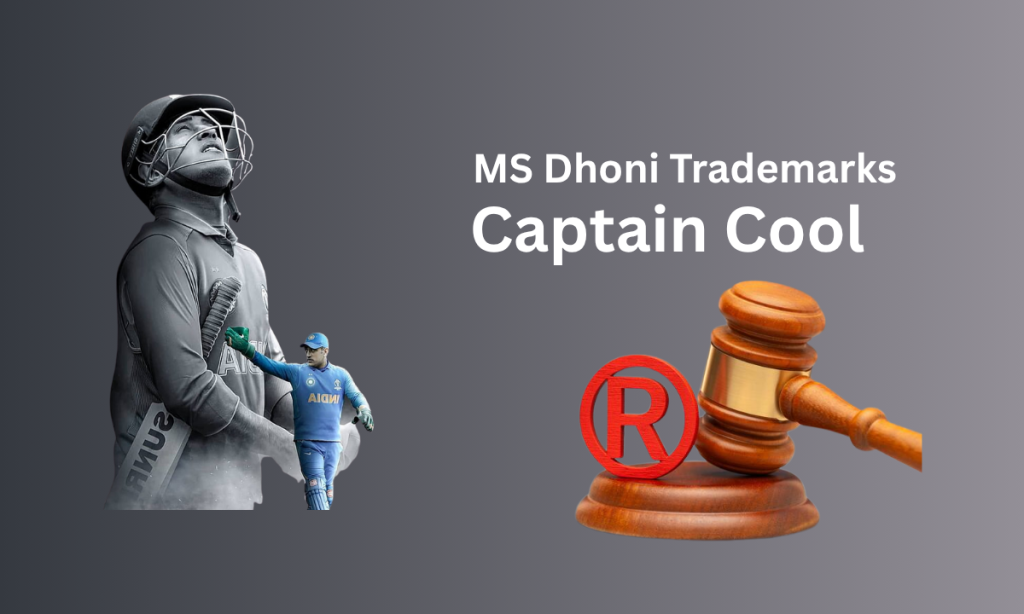Introduction
Former Indian cricket captain Mahendra Singh Dhoni, one of the most celebrated sports icons in the country, has recently filed a trademark application for the phrase “Captain Cool” with the Indian Trademark Registry. This move has attracted considerable media attention and interest from legal professionals, brand strategists, and IP enthusiasts.
With brand-building becoming integral to modern celebrity management, Dhoni’s decision to protect “Captain Cool”—a moniker widely associated with his composed on-field persona—highlights the growing convergence of intellectual property law and personal branding in India.
Trademark Application Details
The application for the trademark “Captain Cool” has been filed under multiple classes, indicating a broad-based branding and merchandising strategy. According to filings available on the Indian Trademark Registry website:
- Proprietor: Mahendra Singh Dhoni
- Mark Name: Captain Cool
- Status: Formalities Accepted (as of date of writing)
- Trademark Classes: Likely to include Class 25 (clothing, footwear), Class 9 (digital media, electronics), and Class 41 (entertainment, sports).
Filing the trademark under various classes ensures exclusive rights over a wide range of commercial uses, including merchandise, apparel, digital goods, and endorsement-related services.
Legal Significance of the Filing
1. Brand Ownership and Commercial Control:
By registering the trademark, Dhoni seeks to obtain exclusive statutory rights over the phrase “Captain Cool,” preventing unauthorized commercial use by third parties.
2. Personality Rights in India:
Though not codified under a single statute, Indian courts have recognized personality/publicity rights under the broader umbrella of Article 21 (Right to Privacy). This application is consistent with prior efforts by celebrities to legally control the use of their persona, name, nickname, or likeness.
3. Preventing Misuse and Passing Off:
The registration strengthens Dhoni’s position in taking action against entities who may engage in unauthorized usage of “Captain Cool” in a misleading or exploitative manner. This includes actions for infringement and passing off under the Trade Marks Act, 1999.
4. Value Creation Through IP:
Like many global sports personalities, Dhoni is aligning his brand strategy with IP protection to create licensing opportunities and enhance brand valuation.
Broader Context: Celebrities and Trademarks
Mahendra Singh Dhoni is not the first Indian celebrity to move towards trademark protection of their identity:
- Sachin Tendulkar owns rights in his name and signature.
- Amitabh Bachchan has previously taken legal action to protect his name and voice.
- Shah Rukh Khan, Virat Kohli, and Sunny Leone have all filed trademark applications for their names or monikers.
This trend reflects a maturing IP ecosystem in India, where celebrities are increasingly aware of their commercial rights and brand equity.
Challenges and Enforcement
While filing for a trademark is a proactive step, the real test lies in enforcement:
- Opposition Proceedings: Third parties can oppose the registration if they claim prior use or similarity with an existing mark.
- Monitoring the Marketplace: Unauthorized use of “Captain Cool” may still occur in informal sectors or online platforms, requiring ongoing vigilance and possible legal intervention.
- Domain Names and Social Media: Dhoni’s team may also need to secure related domain names and usernames to prevent cyber-squatting or impersonation.
Conclusion
The trademark filing for “Captain Cool” by MS Dhoni is a textbook example of strategic brand protection in the age of celebrity entrepreneurship. It reinforces the role of intellectual property law as a tool for reputation management, brand monetization, and legal control over personal identifiers.
As more public figures in India realize the value of personal branding, trademark law will play an increasingly central role in shaping the legal framework for personality rights.
For businesses, fans, and merchandisers, this move serves as a timely reminder: Respect for IP rights is no longer optional—it’s essential.





